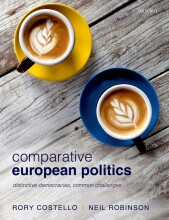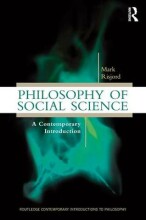Mergaert, Lut and Emanuela Lombardo (2014): ‘Resistance to implementing gender mainstreaming in EU research policy’, in: Weiner, Elaine and Heather MacRae (eds): ‘The persistent invisibility of gender in EU policy’ European Integration online Papers (EIoP), Special issue 1, Vol. 18, Article
5 important questions on Mergaert, Lut and Emanuela Lombardo (2014): ‘Resistance to implementing gender mainstreaming in EU research policy’, in: Weiner, Elaine and Heather MacRae (eds): ‘The persistent invisibility of gender in EU policy’ European Integration online Papers (EIoP), Special issue 1, Vol. 18, Article
What has feminist institutionalism done?
has raised awareness on the genderedness of institutions and has suggested that ‘[d]ynamics of institutional power relations, resistance, reproduction, continuity and change, need to be filtered through a gendered lens’
What did the research entail?
content analysis of official policy documents of DG Research, semi-structured interviews with seven EC officials and three consultants working for the EC between 2004 until 2012, and participant observation during the implementation of projects in the aforementioned period for the DG Research
What are the types of resistance the authors distinguish?
- Higher grades + faster learning
- Never study anything twice
- 100% sure, 100% understanding
What is the difference between implicit and explicit resistance?
Explicit resistance to gender change occurs when actors overtly oppose gender equality initiatives through their actions or discourses, or do not do what they ought to do in order to advance gender equality even when they are made aware of their institution’s gender equality commitments. Implicit resistance does not manifest overtly but it can be verified by observing the extent to which actors, in their discourses and (in)actions, distance themselves from the goal of gender equality itself.
What are reasons for resistance according to this article?
2. Opposition of the goal of gender equality
3. Challenges people's identity and beliefs' they are exposed to criticism or have to change their identity
4. The goal is considered feminist and thus based on emotional rather than rational arguments
5. Not connected to gender change but to persuasion strategies 'reactance'
The question on the page originate from the summary of the following study material:
- A unique study and practice tool
- Never study anything twice again
- Get the grades you hope for
- 100% sure, 100% understanding





























